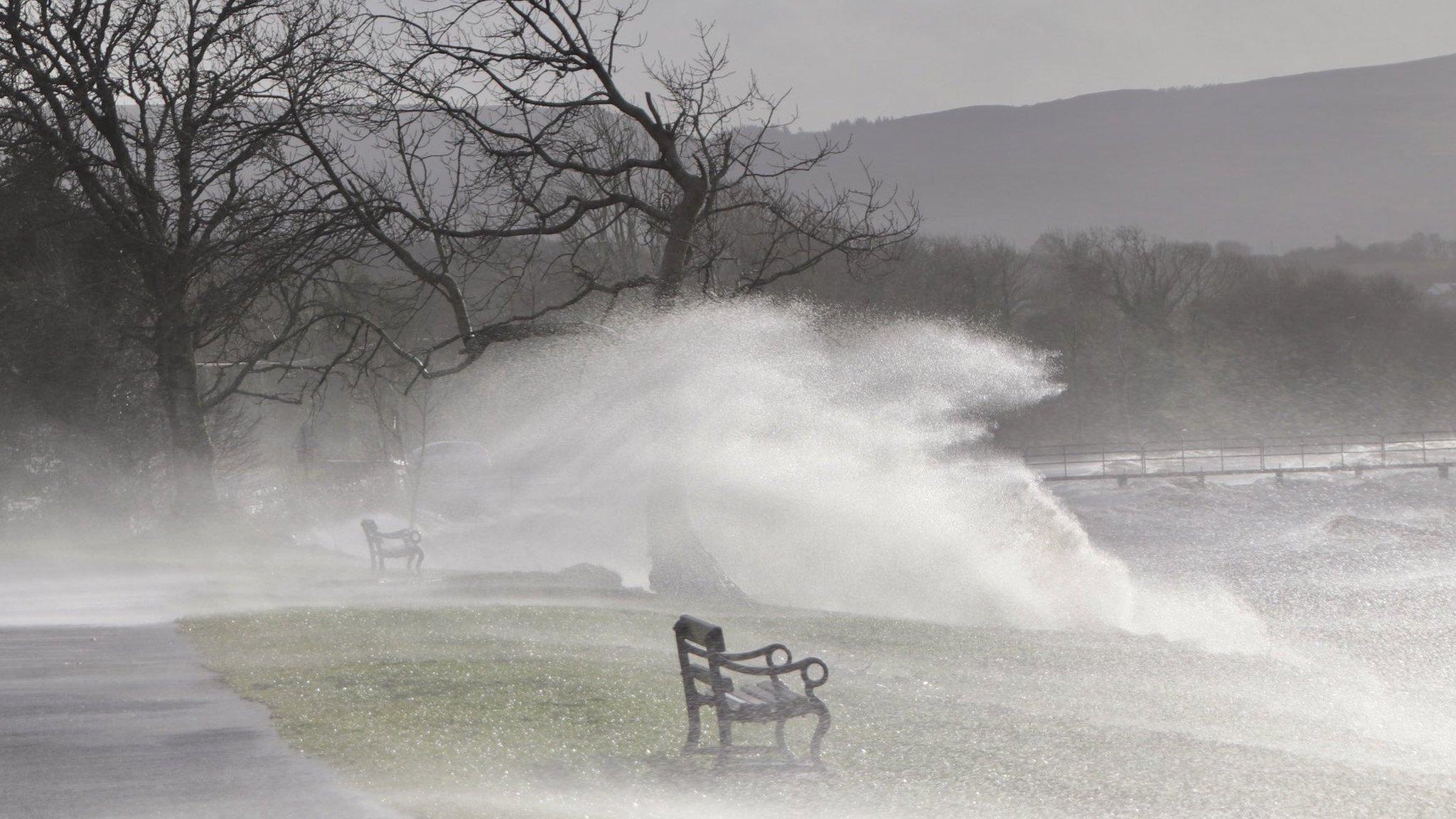Storm Eunice: Record wind gust amid disruption
- Published
Nick Miller gives the latest UK weather forecast
Around 200,000 homes have been left without power and the transport network continues to be severely affected as Storm Eunice lashes the UK.
High winds led to school closures, flight cancellations, and stay-at-home warnings across the country.
One person has died in Ireland and a number of people have been injured in the UK.
A gust of 122mph - measured at an exposed point on the Isle of Wight - set a provisional record for England.
If confirmed, it will beat the previous record of a 118mph gust set in 1979 at Gwennap Head in Cornwall.
A Met Office, external amber warning - meaning there is a potential danger to life - remains in place across the Midlands, southern England, and Wales.
An amber weather warning means there is a good chance flying debris could cause a danger to life, as well as that roofs could be blown off buildings and power lines brought down.
Red warnings - which are very rare - were issued earlier across much of southern and eastern England and south Wales, but have now been lifted.
A man in County Wexford, in the Republic of Ireland, was killed by a falling tree during the storm, while a person in Henley-on-Thames suffered serious injuries after being hit by debris from a roof.
A number of others have been admitted to hospital following separate incidents involving trees and falling debris in London and Wiltshire.
Millions of people were urged to stay at home on Friday, while the storm has also brought widespread travel disruption, with cancellations and severe delays on many transport networks.
Train operators closed routes across the country, with many lines blocked by trees and other debris.
Industry body the Rail Delivery Group said the storm was causing widespread damage, adding: "We're telling people not to travel today and instead to claim a fee-free refund or use their ticket over the weekend."
In London, the South Eastern Main Line announced the closure of its whole network, and pictures showed a major tear to the roof of the Millennium Dome.

The O2 Arena is an entertainment complex that houses a music venue as well as shops and restaurants
Environment Secretary George Eustice said 200,000 homes were without power and around 250,000 had had power restored.
Meanwhile, major incidents have been declared in several areas including Cornwall, Gloucestershire, Avon and Somerset and Hampshire.
In Cornwall and Somerset, residents were urged to stay at home and only travel if "absolutely necessary", while both councils advised people to stay back from cliffs and seafronts due to the danger of large waves.
Many airports have urged customers to check their flights status, with many departures and arrivals to UK airports cancelled or delayed by the winds.
An EasyJet flight from Bordeaux to London Gatwick unsuccessfully tried to land twice before being forced to return to the French city.

National Highways - which is in charge of England's motorways and major A-roads - said there was a "particularly high risk" that high-sided vehicles, caravans and motorbikes could be blown over and has urged drivers of those vehicles not to travel on bridges and viaducts.
The RAC said people should only travel if absolutely necessary and anyone who must should be vigilant, slow down, leave extra space behind the vehicle in front and keep both hands firmly on the steering wheel.
High winds have also led to:
Hundreds of school closures in much of Wales and affected areas of England, including in Cornwall, Devon, Somerset, Wiltshire, Hampshire, Dorset and Bristol
The closure of the two Severn bridges between England and Wales, the Britannia Bridge between Anglesey and mainland Wales, the A14 Orwell Bridge in Suffolk, and the QEII Bridge in Dartford
The Humber Bridge, near Hull, shutting - for only the fourth time in 40 years
More than 400 flights from or within the UK were cancelled, according to analytics firm Cirium
Train cancellations and speed limits were imposed on much of the network - with all train services being suspended in Wales
Fallen trees have blocked multiple roads
The Port of Dover has temporarily closed to all shipping
Ferry services are disrupted, with Dover-Calais crossings and services across the Irish Sea cancelled
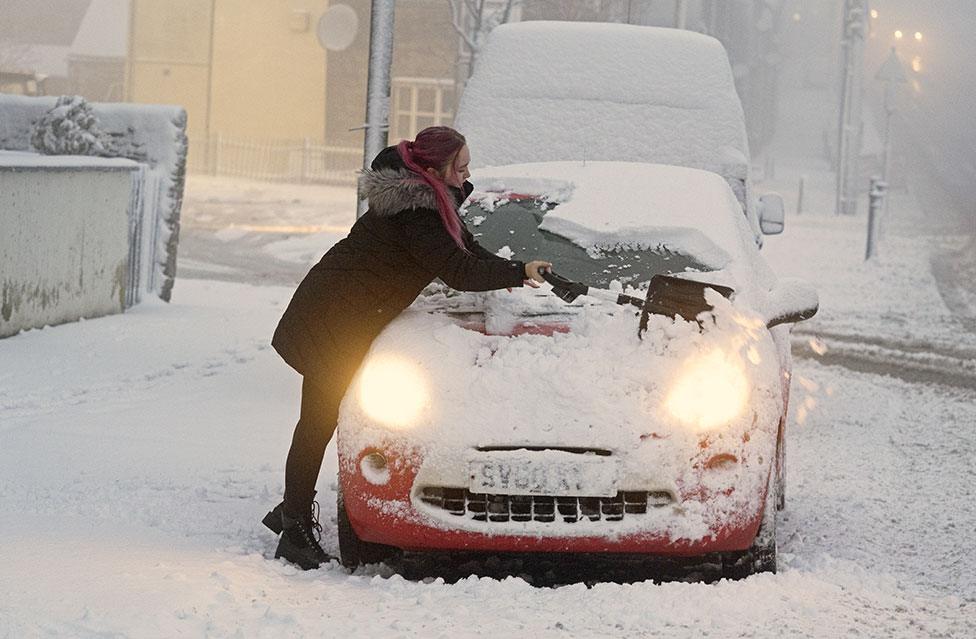
The storm has brought significant snowfall to parts of northern England and Scotland
The Environment Agency has now lifted several severe flood warnings that were previously in place for the Severn Estuary and the Wye Estuary in south-west England.
Less serious flood warnings remain in place in the area as well as in other parts of England, external, Scotland, external and Wales, external.
River flooding in the Pennines, North Yorkshire and Lancashire is expected during the weekend. The water level in rivers, lakes and streams is likely to rise and overflow due to a combination of after-effects of Storm Dudley and snow melting.
A government source told the BBC they were "well-prepared" with more than 250 high-volume pumps and 6,000 trained staff able to be deployed, adding they were not taking the threat posed by Eunice "lightly".
The Army is also on stand-by to support those affected, the PM said on Thursday. And the government was due to hold a second emergency Cobra meeting about the storm on Friday.
Eunice is the second storm in a week to hit the UK after Storm Dudley battered parts of Scotland, northern England and Northern Ireland, leaving thousands of homes without power.
Northern Powergrid said it had restored power to all of its more than 20,000 customers affected by the storm by Thursday evening.
The UK's last red warning was for Storm Arwen in November last year, but before that one had not been issued since the so-called "Beast from the East" in 2018.
Additional reporting by Malu Cursino and Adam Durbin.
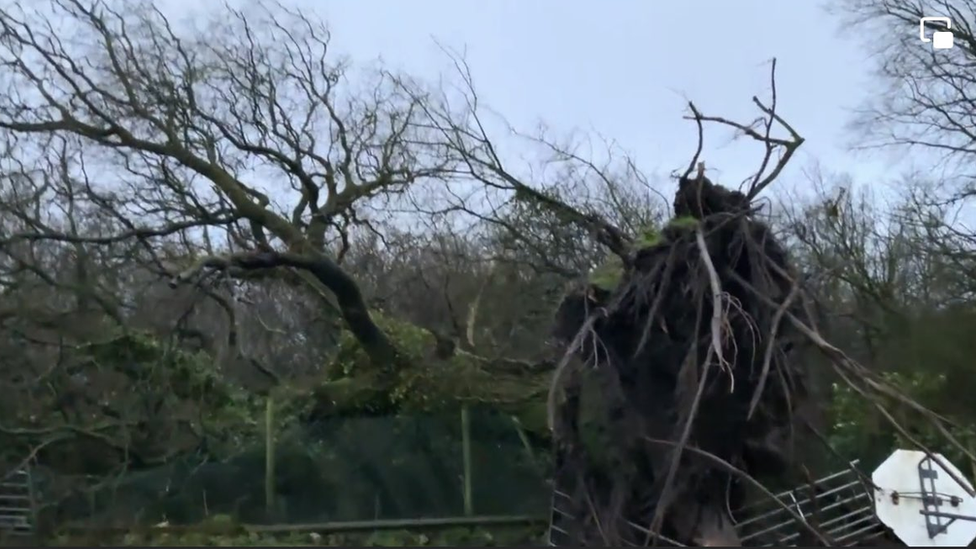
Robbie Bartington and her husband David Walis said a huge oak tree fell close to one of their animal shelters

Related topics
- Published17 February 2022

- Published18 February 2022

- Published17 February 2022

- Published17 February 2022
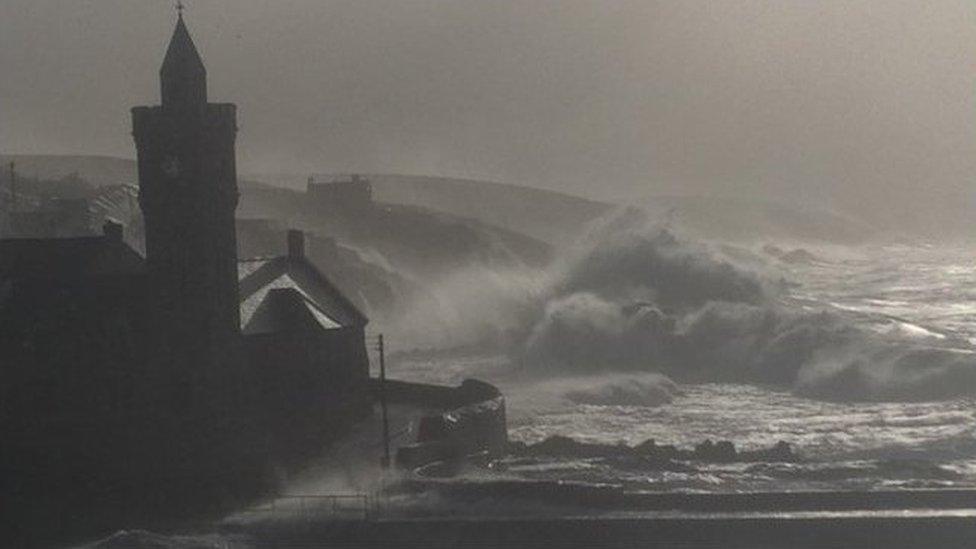
- Published18 February 2022
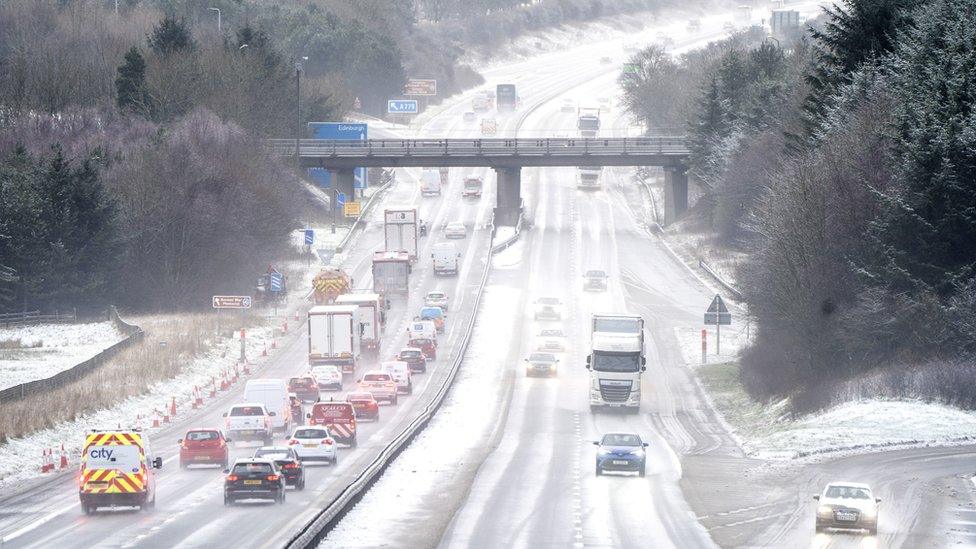
- Published17 February 2022
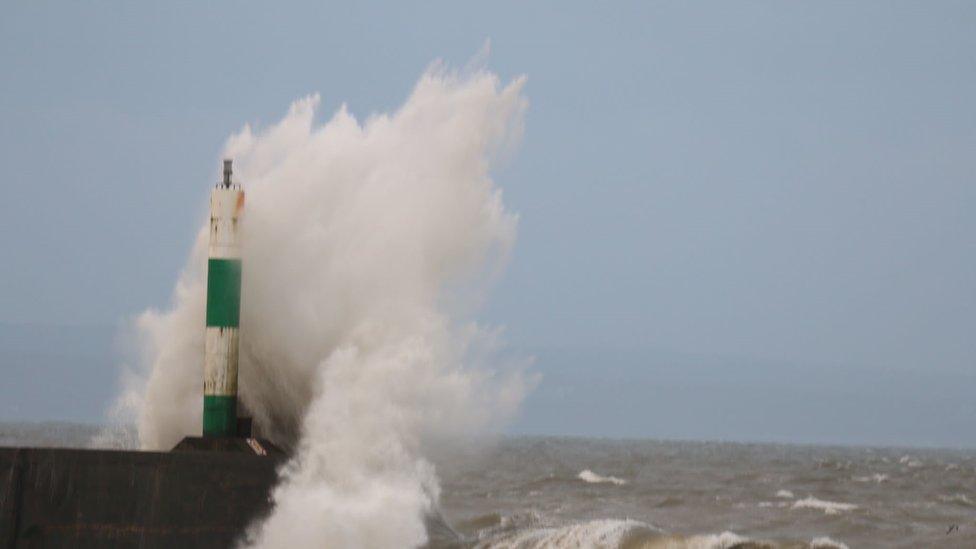
- Published17 February 2022
